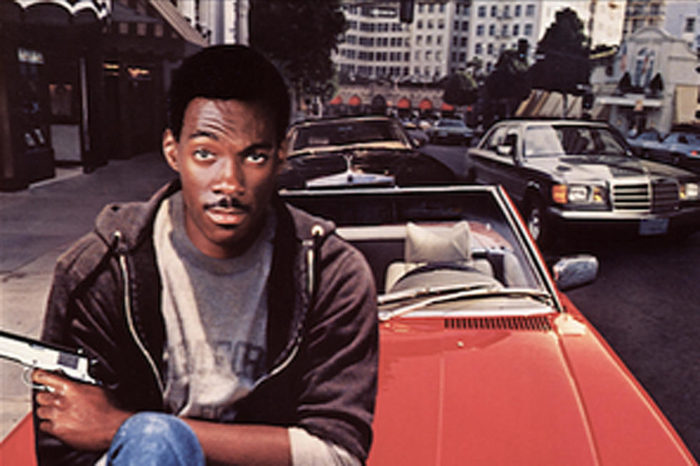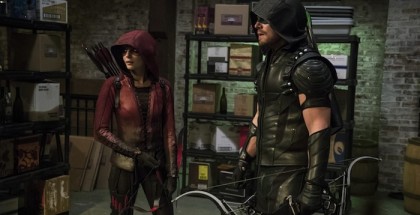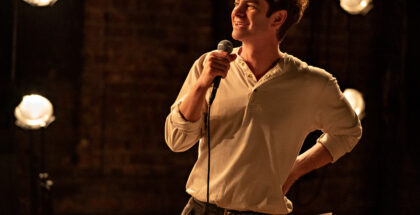VOD film review: Beverly Hills Cop
Review Overview
The banana up the tail pipe joke
8Eddie Murphy’s infectious laugh
8The soundtrack
8Katherine McLaughlin | On 17, Jan 2020
Director: Martin Brest
Cast: Eddie Murphy, Judge Reinhold, John Ashton
Certificate: 15
After the news that Beverly Hills Cop 4 will be making its way to Netflix, and Eddie Murphy’s glorious comeback as Rudy Ray Moore in Dolemite is My Name, now is a perfect time to revisit the 1984 action-packed buddy comedy vehicle that launched wisecracking detective Axel Foley into the world. Murphy returned in 1987 and 1994 to reprise a role that was originally intended for Sylvester Stallone, and one he entirely made his own. (It must be noted that there is the occasional “it was ok (but not really) in the 80s” jokes that truly haven’t aged well, and for which Murphy has since repeatedly apologised for.)
When Foley’s childhood friend unexpectedly visits and is murdered within the space of a few hours, the canny sleuth heads to LA to unofficially investigate the dodgy dealings of the art world. He even gets his own theme tune courtesy of Harold Faltermeyer; a blend of heavy synth imbued with punchy beats, menacing undertones and an embarrassing accompanying music video. The unwelcoming greetings of the posh hotels and skyscrapers inhabited by corrupt businessmen are met with witty and smart retorts by Foley, who has clearly seen it all before. Foley does eventually make allies in the straight guy cops, Rosewood (Judge Reinhold) and Taggart (John Ashton), who always stick to the rules, and another lifelong friend Jenny (Lisa Eilbacher), an art gallery curator who joins him on a crusade to take down the bad guys.
It all ends with a bloody and balletic Western-style gun siege that’s sporadically laced with slapstick. We first meet Foley working undercover and running a con on two thieves in the back of a lorry. Director Martin Brest suddenly switches gear into an exhilarating, high-speed police chase across the backdrop of Detroit, including the Ford Plant, railroad tracks, local bars, community parties and abandoned buildings, all to the invigorating sound of Glenn Frey belting out The Heat is On. The elaborate and frequent reverse turns in all the car chases are something to be applauded. The charged opener all-at-once introduces the viewer to Foley’s life and sets the scene for Michigan to be juxtaposed with the gross display of wealth in Los Angeles.
The three Detroit friends at the centre of the film are a cop, curator and ex-con; their diverging career paths a key element in a film that looks at how people can be pigeonholed or harassed due to class, gender or race. Following Murphy’s role in Trading Places – a film about privilege, wealth and discrimination – Beverly Hills Cop continues a similar line of enquiry about the disenfranchised attempting to enter established and predominantly or exclusively white male institutions. It’s a film that can potentially be read as an examination of systemic racism in Hollywood, and across the board in all professions. Sounds serious, but Murphy’s sparkling charisma in the lead role and his beautifully timed comic delivery as he confidently swaggers and sneaks into white spaces makes this a hilarious and energetic watch.




















